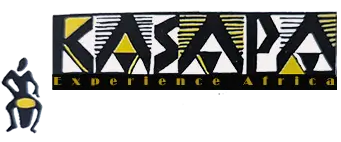FAQS
What is the best time to travel?
In July/August it is still relatively “cool,” meaning no warmer than the European midsummer and not particularly sunny. (In July there may still be occasional heavy rains; in August the sky may be overcast for several days.) After that it becomes warmer (around 30°–33° during the day) and sunny. In December/January it may also be hazy and overcast with pleasantly “cool” nights – but you must take into account that the temperature difference between the European and Ghanaian climates is quite large in winter. The proximity of the equator is most noticeable in March/April, and on the “northern tour” even in October. The humidity is usually unusually high; however, near the coast the sea breeze always brings some refreshment.
Is the KASAPA Center by the sea?
Indeed, the Atlantic beach forms the boundary of the 2.5-hectare KASAPA property: A small staircase leads directly to the sea over a steep slope. When the tide isn’t high, you can walk along the beach, search for shells, watch the fishermen… Swimming isn’t possible here, though, because the waves obscure too many sharp rocks. However, we organize swimming trips to a small hotel beach nearby—and at the KASAPA Centre, you can always enjoy the sea breeze and the expansive view of the Atlantic.
What is the electricity supply like at the KASAPA Centre?
Our basic utilities (lighting, refrigerators, office) are powered by our own photovoltaic system, making us independent of the national power grid and its frequent power outages. The guest rooms have bedside lamps with solar-rechargeable batteries, but no electrical outlets. There are electrical outlets in the kitchenette and in our office where you can also recharge your batteries; you can also shave in the courtyard.
How much money do I need to budget for my private consumption?
Of course, this depends largely on what you want to afford and how “susceptible” you are to souvenir purchases – Ghana is rich in traditional handicrafts. In my experience, private consumption ranges between €50 and €130 per week; €100 is probably quite comfortable (including the drum purchase).
What currency/payment method should I bring?
You can exchange dollars and euros in Ghana for the local currency (cedis). The first opportunity to exchange them is in the arrivals hall of Accra Airport, right next to the baggage claim area. The dollar is not valued more highly than the euro (so there’s no advantage in getting dollars specifically for your trip to Ghana).
Credit cards (Visa, Maestro/Girocard) can be considered as a cashless backup. However, card readers in Ghana are not always secure or reliable, even in larger hotels and banks. For transfers through a transaction service provider (e.g., Western Union, MoneyGram), there are many payout locations in Ghana; you should clarify the details of a possible transfer process with the transfer provider or your bank before traveling to Ghana.

